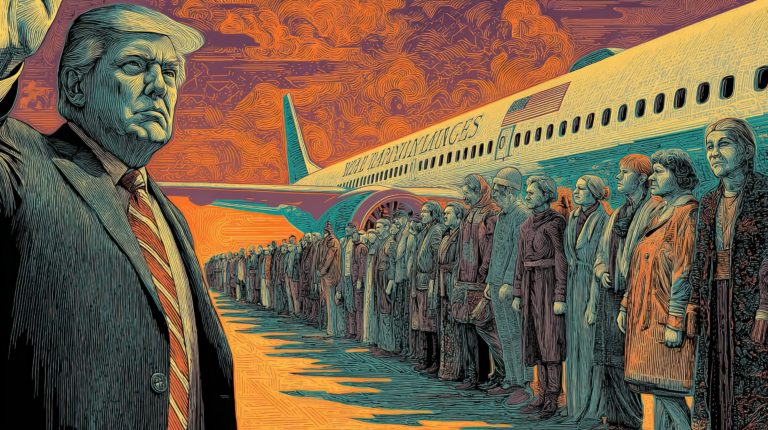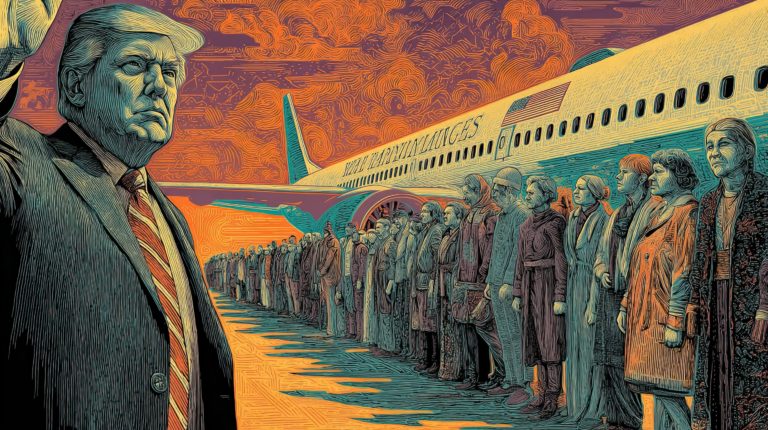The Global Censorship Wars: Trump, Bolsonaro, and the Battle for Narrative Control
Introduction
When a Brazilian Supreme Court judge can dictate content bans on American social media platforms, and when Donald Trump cries censorship while suing those who expose his corruption, it becomes clear: the battle for free speech is nothing but a tool for the powerful to shape the global narrative in their favour.
Welcome to the modern-day information war, where hypocrisy reigns supreme, and where the illusion of an open internet is crumbling under the weight of political manipulation.
A Brazilian Judge vs. Trump’s Right-Wing Media Empire
At the centre of this latest absurd legal showdown is Alexandre de Moraes, a Supreme Court judge in Brazil who has cracked down on Jair Bolsonaro’s disinformation networks. His latest target? Trump Media and Rumble, the right-wing video platform that has become a safe haven for far-right propagandists silenced elsewhere.
- Bolsonaro, once Trump’s Brazilian twin in populism, is now cornered by legal troubles over his alleged involvement in coup attempts.
- Moraes has imposed sweeping bans on Bolsonaro-linked accounts, extending even to American platforms, in a move that reeks of overreach.
- Trump Media has responded by filing lawsuits, branding it a case of ‘foreign censorship’—while conveniently ignoring Trump’s own long history of calling for bans on critics and media outlets he despises.
This isn’t about freedom of speech. It’s a battle of power, where different factions of the global elite fight over who gets to control the narrative.
The Hypocrisy of the ‘Anti-Censorship’ Crusade
Let’s get one thing straight: Trump and Bolsonaro are not warriors for free speech. They are power-hungry demagogues who only support free expression when it serves their agenda.
- Trump, the so-called ‘defender of free speech,’ attempted to ban TikTok, repeatedly called for jailing journalists, and wanted to shut down media outlets critical of him.
- Bolsonaro thrived on weaponised misinformation, inciting violence and attempting to delegitimise democratic institutions before being blocked from social media for spreading coup-related propaganda.
- Both figures now rally behind platforms like Rumble as ‘free speech utopias’—which, in reality, are nothing more than echo chambers where they can manipulate public discourse unchallenged.
Moraes is no saint either. His approach of authoritarian-style censorship may seem like a defence against disinformation, but it sets a dangerous precedent: should a single judge have the power to dictate global content restrictions?
A Fragmented Internet, Controlled by the Powerful
What this legal war really reveals is the terrifying future of a balkanised internet, where different governments impose their will on digital platforms beyond their borders.
- The U.S. wants tech companies to silence critics of Israel while decrying ‘censorship’ when their own extremists are deplatformed.
- Europe cracks down on misinformation but remains selective, letting right-wing narratives flourish while hammering independent leftist voices.
- China and Russia operate full-blown state-controlled internet ecosystems, proving that true control over digital narratives is the ultimate prize for any regime.
What’s happening with Trump, Bolsonaro, and Moraes is not about principle. It’s about who gets to decide what you can see, hear, and think.
Conclusion: The Internet as a Tool for Power
The biggest lie we’ve been sold is that this is a fight between democracy and authoritarianism, between censorship and freedom. The reality?
It’s a power struggle among the world’s ruling elites, all of whom want control over the digital battleground.
While they distract us with theatrical lawsuits and grandstanding about free speech, the real game is being played behind closed doors. Deals are struck, policies are drafted, and one by one, the spaces for genuine dissent shrink into oblivion.
Make no mistake: we are not moving towards a freer internet. We are hurtling towards a world where digital discourse is policed not for the sake of democracy, but for the convenience of those who already hold power.
And in this war, the only real losers are us…
G.S.







Why do you say the same thing as the mainstream newspapers when you claim to be an alternative media?
Because truth is not defined by opposition, but by evidence.
Being an alternative media does not mean systematically contradicting the mainstream press—it means questioning narratives, analyzing facts independently, and exposing what is often left unsaid.
When mainstream outlets report something accurately, acknowledging it is not conformity, but intellectual honesty. The real question is not ‘who says it’ but ‘is it true?’
If you seek an alternative for the sake of contradiction, you’re not searching for truth, just a different echo chamber. At Acid Report, I challenge narratives—mainstream or alternative—when they deserve scrutiny, not just for the sake of opposition.